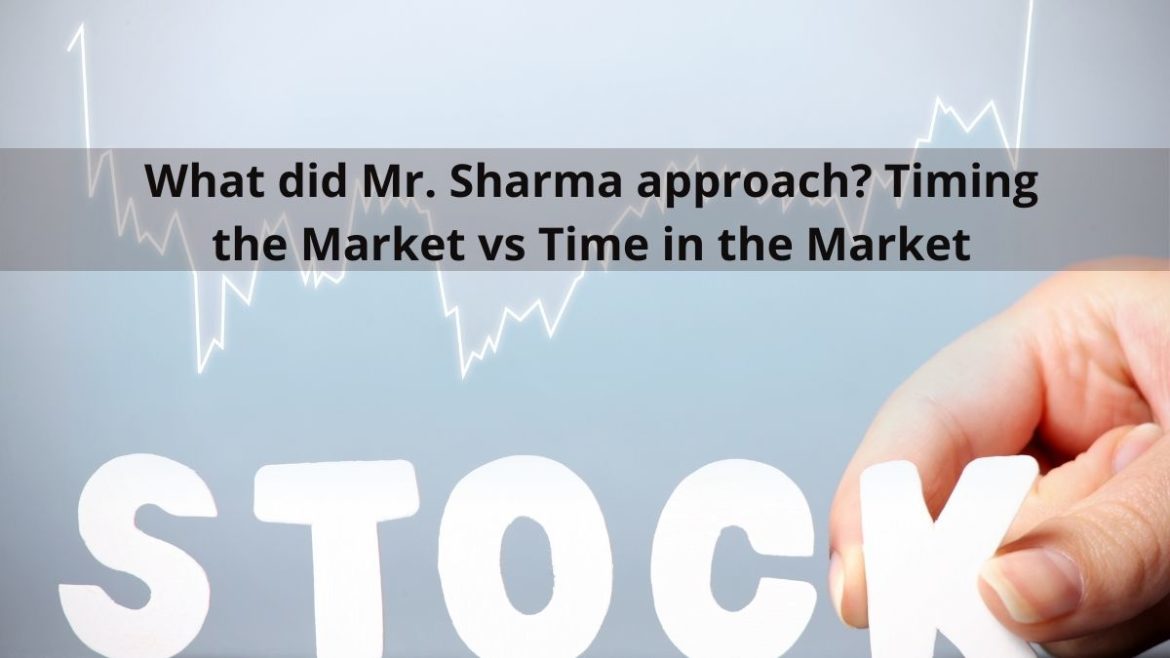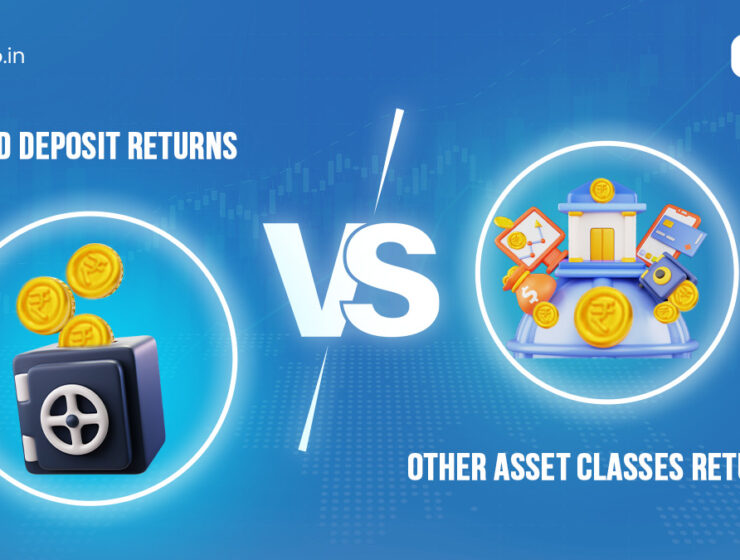

Timing the Market vs Time in the Market: Mr. Sharma was very much worried about the stock market would fluctuate and so will his returns. He said “I am thinking whether I entered the markets at right time. Right now, markets are volatile and can’t be timed for a better entry point”
I refuted him, “No investor can time the market for correct entry or exit point. Due to the dynamic nature of the markets, it is better to wait and hold the stock for the right time rather than timing the right entry or exit points in the stock markets.”
“Well, now I am confused, aren’t those both the same things?” Mr. Sharma said.
“Not at all, these are totally different strategies and give different results. I will help you understand these.”

Who is a perfect investor?
A perfect investor is the one who can buy a stock at its lowest price level and sell at its highest price level. This perfect investor is a myth. Time plays a very vital role in choosing an investment strategy. Fluctuating markets reflect promising returns and many of us get attracted by short-term numbers showing high gains. In the short term, markets are generally volatile, while in the long run, investments exhibit stable behaviour and deliver consistent returns.
The market moves in the most unpredictable ways in the short run, but in the long run, there is much more predictability. Before investing hard-earned funds, one needs to understand the working of markets and the risks associated with investing, which is not easily possible with short-term investments. Investment objectives might differ from person to person, but everyone intends to get good returns.
Related Article: Impact of having Domestic stock in your Portfolio
What is Market Timing?
Market timing is an investing strategy in which the investor tries to identify the best times to enter and exit the market. This can result in higher returns than other strategies. However, there are risks involved. Changes in a market trend can appear suddenly and almost randomly, making the risk of misjudgment significant. Regular evaluations are necessary as this strategy involves active monitoring of funds invested. Timing the market requires many, many correct guesses – when to get in when to get out when to go back in again and it is a continuous process. The probability of making correct guesses most of the time is quite low.

What is Time in the Market?
This investment strategy is also called Buy and Hold investing, however, it doesn’t mean ignoring your investments. Here, the investor focuses on buying quality stocks and holding them for a longer-term. Here, the investor intends to pick a good stock at a fair value rather than an average stock with a great valuation. The longer you stay invested, the lower is the risk of losing funds. Long-term investments ensure consistency against speculative gains. Successful investors base their actions on deep research rather than random market ups and downs. However, it is advised to monitor your investments regularly.
What do we understand as the difference between time and timing? To understand this difference, one needs to look at the difference between speculation and investing. Speculation is trying to take a bet on the future direction of the market and positioning your trades accordingly. On the other hand, investing is all about focusing on the quality of the asset and holding on to it for the longer term. That is the fundamental difference between the timing of the market and time in the market. When you try timing the market you are effectively speculating on the market direction.
Why does time in the market work better than timing the market?
- In the short run, a stock market is a slotting machine but in the long run the stock market is a weighing machine. Over a longer period of time, quality stocks held on tend to outperform any kind of aggressive strategy for timing the market. Over the longer run, the vagaries of the markets tend to get smoothened.
- Transaction costs make a big difference to a timing strategy. When we talk of transaction costs, we refer to brokerage, statutory costs, taxes, exit loads in case of mutual funds etc. When you add all these up the actual economics of timing the market can change quite drastically.
- Timing the market is very vulnerable to the handful of good days and bad days in the market. Over a period of 10-15 years, there will be days when the markets will either spurt sharply or correct sharply. In the process of timing the market if you miss out on these good days or if you happen to buy on the bad days, your timing concept can grossly underperform. This is what actually happens when you try to time the market.
- When you try to time the market, you tend to get carried away by the hype in the media and the analyst community. Normally, the media and the analyst community tend to create a sense of hysteria around stocks which may not really materialize. That hysteria is essential to create interest but, in the process, you may end up hurting your portfolio.
- Time in the market gives you a sense of perspective. When you time the market, you tend to get too involved with the market vagaries at a short-term level. Instead, if you take a longer-term approach you are able to invest when valuations are attractive and vice versa. This sense of perspective works in favour of time in the market over timing.

Conclusion
So, clearly, Mr. Sharma should approach time rather than timing. Markets have proven time and again that passive, long-term investing without any attempt to time the market would be the superior choice.
To Invest and keep regular track of your portfolio download Fintoo App Android http://bit.ly/2TPeIgX / Fintoo App iOS – http://apple.co/2Nt75LP
Related Posts
Stay up-to-date with the latest information.


